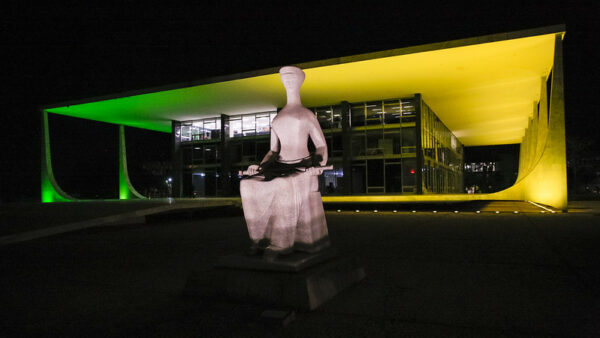President-elect Luiz Inácio Lula da Silva on Sunday underwent a surgical procedure to remove a leukoplakia, a type of lesion in the larynx. He was discharged from the hospital on Monday. A medical report released by his press office says he is doing well.
The lesion was located on Lula’s left vocal fold and was identified before his trip to Egypt, where he attended the UN Climate Conference (COP27) last week. In addition to the injury, his larynx also presented inflammation points, attributed to the strain of this year’s election campaign.
In 2011, Lula was diagnosed with throat cancer. He underwent chemotherapy and radiotherapy and was considered cured the following year. In his most recent checkup, doctors found that the cancer was in complete remission, and there were no signs of new tumors.
At the time, doctors considered that the disease could affect Lula’s voice, which had become hoarser over the years. He was a smoker for 50 years.
After his cancer diagnosis, Lula started to do physical activity daily — a routine he presents on his social media.
On January 1, 2023, Lula will take office at age 77, the oldest president in Brazilian history on Inauguration Day. But he likes to repeat that he has the “physical vigor of a 20-year-old.”
The swift disclosure of Lula’s condition seems to be a departure from tradition. Throughout history, presidents who have suffered health issues — even in the mass media era — have tended to conceal their condition, thus fueling conspiracy theories.
The most notorious such case took place in 1985. On the eve of his inauguration, president-elect Tancredo Neves was rushed to hospital with severe abdominal pain. He would die without ever taking office.
Outgoing President Jair Bolsonaro has battled with health issues since being stabbed on the campaign trail in 2018. Early in his administration, the health status of the president was all too transparent, with his son Carlos publishing daily photos of his father eating, signing documents, and even meeting with cabinet ministers while in hospital.
Later, the approach changed, with no photos of hospital visits or presidential medical bulletins. The president even put his own vaccination records under the seal of secrecy, and to this day, it is unknown whether or not Mr. Bolsonaro has taken a Covid vaccine.

 Search
Search










































